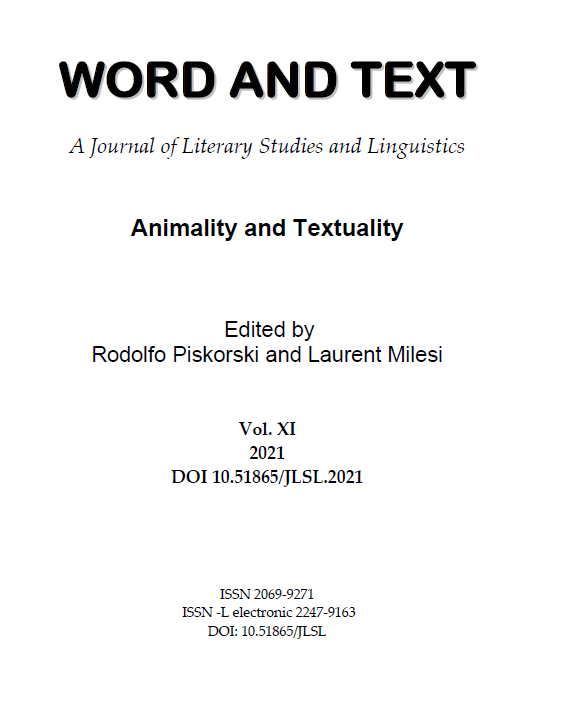Writing Animality in Yoko Tawada’s "Memoirs of a Polar Bear"
Writing Animality in Yoko Tawada’s "Memoirs of a Polar Bear"
Author(s): Jamie JohnsonSubject(s): Fiction, Ethics / Practical Philosophy, Aesthetics, Semantics, Comparative Study of Literature, Theory of Literature, Rhetoric
Published by: Universitatea Petrol-Gaze din Ploieşti
Keywords: anthropomorphism; metafiction; ecopoetics; nonhuman; animal; narrative; Franz Kafka; animal studies;
Summary/Abstract: Yoko Tawada, an author writing in both Japanese and German, is what critics call an exophonic writer, that is, a writer who uses a language other than one’s mother tongue for creative purposes. Writing from a foreign point of view is part of Tawada’s interest in acquiring perceptions of otherness both linguistically and culturally. We might apply Tawada’s exophonic writing when entering animal worlds by creating what Frederike Middelhoff terms ‘literary auto-zoographies’. Tawada’s novel Memoirs of a Polar Bear contains three generations of polar bear narratives: two circus performers and one zoo inhabitant. The text takes a postmodern metafictional approach to problems that arise in speaking for the animal other, a subject under much discussion in Animal Studies scholarship today. My article examines each of the three characters and their corresponding narrative modes. First, the grandmother polar bear writes a first-person autobiography of her life as a performer; in doing so, Tawada combines fiction and nonfiction to deconstruct the bear character’s identity thus resulting in what might be called a more authentic animal autobiography. Second, the article focuses on Tawada’s fascination with translation through the human-animal shared spaces between Tosca (the daughter of the unnamed grandmother polar bear character) and her human trainer. Lastly, the article examines the grandson, Knut, as an example of the current humanimal subject of ecopoetics with an emphasis on Knut as an environmental figure.
Journal: Word and Text, A Journal of Literary Studies and Linguistics
- Issue Year: XI/2021
- Issue No: 1
- Page Range: 147-158
- Page Count: 12
- Language: English

